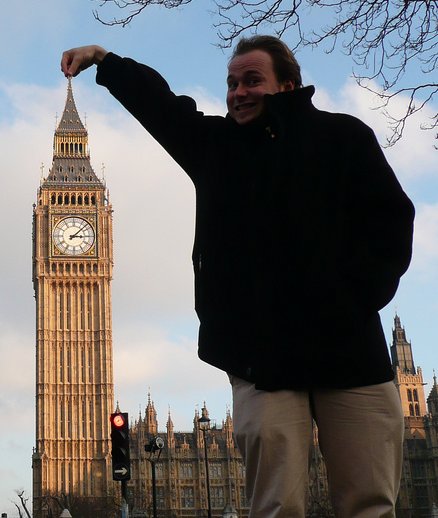How to learn a language in hours, not years
I get told so many times that someone has been studying Spanish/French/Japanese/etc. for five, ten (or whatever) years. Despite this, in most cases, if they tell me how many years they have been studying it, it's usually a precursor to “but… I don't speak it!”
This is usually to justify how hard their language is, how untalented they feel, or how the universe is against them and that they will never speak the language. If I plan to speak a language in just a few months, they say that clearly it's because I have some secret formula I've been hiding from you all, or it's down to my superior language genes, right?
NO.
Once again this is due to a way of looking at their work and progress that I have to say is flawed. It's a grossly inefficient measuring system, and understanding that will help you see why you can't speak your language despite “years” of work.
The questionable quality of your “years”
The idea for this post were inspired by Anthony Lauder's video Become a polyglot in minutes not years. He explains it very nicely, but I am going to be much more frank, because I am sick of people telling me how many “years” they have spent to get no results and complaining about it. The problem is pretty obvious.
The idea is very simple – when you say you have “spent five years” learning a language (or doing anything for that matter), then you may actually be kidding yourself. The only thing you have actually spent the last five years doing is breathing.
But perhaps in this time you have actually just put an hour every few days into studying your language. I did this myself – I “studied” German for five years but didn't speak it after all that time. But then again, I was barely interested and gave it minimal attention. It's amazing I passed my university entrance exam at all.
Maybe you were a more serious learner than I was and even spent an hour a day studying grammar, or several hours a day doing passive listening! That's great, but it's not good enough if you start talking about the long-term time investment you are actually making.
Thought experiment: Let's measure your hours for real
If it were possible to measure work honestly, where actively speaking a language for an hour counts as a “real” hour unit, studying grammar would be 0.2 units etc. (you may disagree with this – that depends on your end-goals and mine is to speak). Then continuing from this, the unit also gets reduced if you are not passionate enough to put all your energy and focus into it (then passive listening would be worth 0.01 units in my opinion – i.e. something, but barely better than nothing).
Now add up your “hours” based on this new system, but actually counting the time you put in and you will see a dramatic difference. “Five years” of two hours of passive listening a day, four hours of grammar studying a week and two hours of actual practise with natives per month would give you about 364 “hours” (based on my weighted units) of genuine work. That's fifteen days worth of work in your “five years”.
Sure, that's fifteen days no sleeping and no eating. Add in eight hours to sleep, and three hours for eating and other activities per day (i.e. your “double time” job is just to learn the language) and it's an extra twenty days. So your five years is about the same as someone exactly as intelligent as you are totally devoted to their task for a month.
In my experience this is closer to the truth than you might think – after a few weeks of total devotion, someone of average intelligence can reach the same level as (or usually better than) someone who has “studied” it for half a decade.
If I were to measure my original school German using a similar system, I'd probably arrive at a week of actual work after five years considering how little I really cared about my task.
Solution: measure your progress in devoted hours, not years
I'm not trying to tell you to quit your job and only think about the language whenever you aren't sleeping or eating. That's not realistic.
Even I'm not 100% devoted to my language learning tasks myself. I write in this blog in English, and have had many full-time jobs that don't contribute to my language abilities, as well as exercising, travelling, making videos etc. that don't contribute to my mission, since life or your varied interests require you to do these things.
Despite this, I can tell you that successful language learners (not just me) are way more devoted than most people are to their language learning projects. The quality and devotion they put into their task are what makes the difference. They make sacrifices, accept making mistakes and embarrassment as an essential part of their journey, expose themselves to the language at every opportunity, and do whatever it takes to make progress quickly.
When you look at these people, it's clear that the number of “hours” they put in, is way superior to the number of “years” other people do. This is nothing to do with having more time, it's using their time efficiently.
Particular learning approaches help a lot, but devotion is what makes language learning possible in shorter times. Being in the country isn't the game changer either. There are plenty of expats that don't make progress despite years of living among native speakers. In my first week of devoted and active learning, I usually overtake them simply because I look for any way possible to make it happen, rather than focusing on excuses why I can't.
The good news is that when you think about the hours you have actually put in, you'll see that you have achieved so much more than you thought you had. The example I gave above would give someone a pretty decent understanding and grasp of a language in a month of work, rather than five years. This is something to be proud of.
To learn a language in hours and not years, you have to count those hours for what they are worth and make them worth it. If you try to do the same, and realistically measure your true time and passion investment in your language learning project, you'll see that maybe you are actually doing pretty well for the first “month” you have truly put into it.
Now try to increase that devotion and see your next month of progress happen much quicker 😉




Social